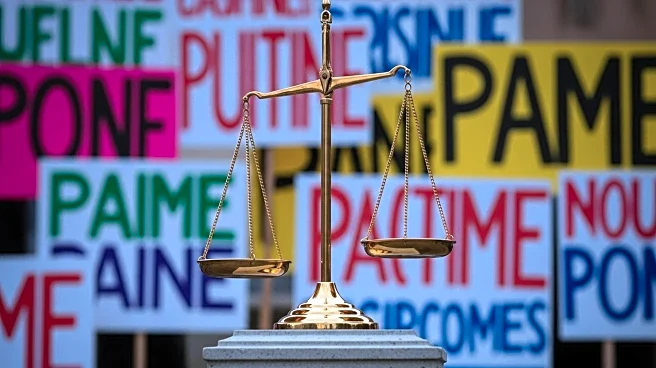What's Happening?
Protests have erupted across Jakarta, Indonesia, following the death of Affan Kurniawan, a motorcycle ride-sharing driver, who was hit by a police vehicle during clashes near the parliament. Demonstrators are calling for police reform and accountability, with protests spreading to other cities like Surabaya and Bandung. The incident has prompted schools to close early and businesses to implement remote work policies. President Prabowo Subianto has expressed condolences and ordered a thorough investigation into the incident, while the national police have detained seven officers involved for a breach of ethics.
Why It's Important?
The protests highlight growing public dissatisfaction with police conduct and governance in Indonesia, posing a significant challenge to President Prabowo Subianto's administration. The unrest has economic implications, as the rupiah weakened and the stock index fell amid the demonstrations. The situation underscores the need for transparent investigations and reforms to restore public trust in law enforcement. The government's response to these protests could influence its political stability and international reputation, particularly in terms of human rights and governance.
What's Next?
The Indonesian government faces pressure to conduct a transparent investigation and implement police reforms to address public grievances. The outcome of these protests could lead to policy changes and impact the administration's approach to law enforcement. Continued unrest may affect Indonesia's economic stability and investor confidence, prompting further government action to mitigate these effects. The international community may monitor the situation closely, influencing Indonesia's diplomatic relations and human rights standing.
Beyond the Headlines
The protests reflect broader societal issues in Indonesia, including concerns over governance, economic inequality, and public safety. The incident has sparked discussions on the role of law enforcement and the need for systemic reforms to prevent future occurrences. Cultural and ethical dimensions, such as the treatment of marginalized groups and the accountability of public officials, are likely to be explored as the situation develops.











